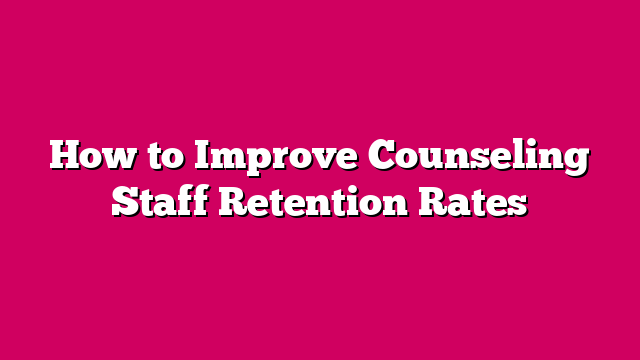Have your progress notes written for you automatically
Are you a mental health professional considering the pursuit of a private counseling practice? If so, it’s essential to understand the numerous requirements and considerations required for your practice’s establishment and success. If you’re seeking autonomy, flexibility, and the opportunity to tailor your services to your preferences and client base, building a private counseling practice is the way to go. Careful planning, adherence to legal and ethical standards, and a solid understanding of business principles are necessary to avoid problems in the future. Read on for a description of requirements to consider when establishing your private counseling practice.
Licensure and Qualifications
To start and operate a private practice, you may need to possess certain qualifications, such as licensure or certifications. This may involve obtaining a degree in your field (social work or psychology, for example) from an accredited institution, completing supervised clinical hours (varies by state or country), and passing a licensing exam. You may also be required to log continuing education credits to maintain your licensure. Below are the steps you must take, but always explore your state and/or country requirements.
Obtain Education and Training.
Licensed mental health professionals must attain specific educational qualifications that align with their field. This often involves obtaining a master’s or doctoral degree in counseling, social work, marriage and family therapy, psychiatry, or a related mental health discipline from an accredited institution. Each profession has its unique educational requirements that must be fulfilled before pursuing licensure.
Complete Supervised Experience.
Mental health professionals typically need to complete a specific number of supervised clinical hours or fieldwork, which varies based on the specialty and licensing board or regulatory body requirements. Supervised experience generally involves working under the guidance of a licensed supervisor to gain practical skills and hands-on experience in counseling, therapy, or within clinical settings.
Take the Licensing Exam.
After completing the required education and supervised experience, mental health professionals must pass a licensing exam specific to their field. Exams typically assess the individual’s knowledge, competence, and understanding of ethical and legal standards within their profession. Examples include the National Counselor Examination and the Clinical Social Work Examination.
Continuing Education.
Maintaining licensure often requires ongoing professional development through continuing education credits. This involves attending workshops, seminars, courses, or conferences to remain current on the latest research, therapeutic techniques, and ethical standards. Staying informed about changes in the field is crucial for providing high-quality care to clients and meeting licensure renewal requirements.
Specialized Certifications.
Some licensed mental health professionals may pursue specialized certifications in specific therapeutic modalities or areas of expertise. Certifications can enhance skill set, credibility, and marketability. Certifications might include trauma-informed care, cognitive-behavioral therapy (CBT), dialectical behavior therapy (DBT), or substance abuse counseling certifications, among others.
Ethical Guidelines and Scope of Practice.
Mental health professionals must adhere to strict ethical guidelines and a defined scope of practice outlined by their licensing board or professional organization, including maintaining confidentiality, obtaining informed consent from clients, practicing within their areas of expertise, and seeking consultation or supervision when dealing with complex cases.
Navigating the licensure and qualification requirements is essential when considering the establishment of a private practice. Compliance with educational standards, supervised experience, licensing exams, ongoing education, and adherence to ethical guidelines forms the foundation for a successful and ethically sound private practice.
Business Plan
A comprehensive business plan serves as a roadmap for establishing and growing a successful practice. Here’s how to create a robust business plan:
Define Your Practice’s Vision and Mission.
Define the core values, objectives, and the overarching purpose of your practice, and consider what makes your practice unique. Highlight your approach, specialization, or therapeutic techniques that differentiate you from others in the field.
Identifying Your Target Market and Niche.
Define demographic details such as age, gender, socioeconomic background, and specific mental health concerns or issues your clients might face. Determine your niche within the field. Perhaps you specialize in areas like trauma therapy, LGBTQ+ counseling, couples therapy, child and adolescent counseling, or substance abuse treatment.
Services Offered and Pricing Structure.
Be specific about the therapeutic modalities or interventions you specialize in. Develop a pricing structure for your services. Consider factors such as session duration, sliding scale fees based on income, insurance acceptance, or packages for multiple sessions.
Marketing and Branding Strategies.
Craft a marketing strategy tailored to reach your target audience. Utilize various channels such as online marketing (website, social media), community outreach, networking with healthcare providers, and participation in local events. Build a strong brand identity that reflects your practice’s values, specialization, and unique selling points. Consider branding elements like a logo, tagline, and consistent messaging across marketing materials.
Legal Structure and Registration
Determine the legal structure that best suits your practice, such as a sole proprietorship, partnership, limited liability company (LLC), or professional corporation. Each structure has its own tax implications, liability considerations, and governance requirements.
Register your practice and obtain the necessary licenses and permits required for operating a mental health practice in your area. This includes registering your business name and obtaining a tax identification number.
Consider Legal Structure Options
- Sole Proprietorship. As a sole proprietor, you are the owner of your mental health practice. It’s the simplest form of business ownership, where you and your practice are considered the same legal entity. Profits are taxed as personal income, subject to personal income tax rates. You have unlimited personal liability for debts and legal obligations of the practice. Few formalities are required, but you have full control over the practice.
- Partnership. A partnership involves two or more individuals sharing ownership and responsibilities in the mental health practice. Partnerships file an informational return, but profits pass through to partners’ personal tax returns. Partners share liability for the practice’s debts and obligations. Partnerships operate based on a partnership agreement outlining roles, responsibilities, and profit-sharing.
- Limited Liability Company (LLC). An LLC combines aspects of partnerships and corporations, offering limited liability protection to its owners (members). LLCs offer flexibility, allowing owners to choose between being taxed as a partnership or a corporation. Personal assets are generally protected from the practice’s debts and liabilities. LLCs require less formalities compared to corporations but require an operating agreement outlining how the company will be run.
- Professional Corporation. A corporation is a legal entity formed by licensed professionals in certain fields, such as mental health, to provide services. Generally taxed as a separate entity, this can result in different tax treatments compared to other structures. Like an LLC, a corporation offers limited liability protection for the owners (shareholders) against practice-related liabilities. More formalities are required, such as shareholder meetings and maintaining corporate records.
Register Your Practice
- Business Name Registration. Choose a name for your practice and ensure it complies with your state’s naming regulations. Register the business name with the appropriate state authorities.
- Obtain a Tax Identification Number. Apply for an Employer Identification Number (EIN) or Tax Identification Number (TIN) from the Internal Revenue Service (IRS). This unique number is necessary for tax filings and business-related transactions.
- Licensing and Permits. Obtain the necessary licenses, certifications, and permits required to operate your practice. Be sure to check all local and state regulations.
- Additional Registrations. Depending on your location, you might need to register with local or state health departments or regulatory bodies overseeing mental health practices.
- Complying with Legal and Ethical Guidelines. Ensure compliance with legal and ethical standards set by your profession’s governing body or licensing board. This includes maintaining confidentiality, obtaining informed consent, adhering to record-keeping practices, and strictly following HIPAA regulations.
Selecting the appropriate legal structure and completing the necessary registrations and licensing are essential steps for establishing a legal and compliant practice. Consulting with legal and financial professionals can provide valuable guidance in making informed decisions based on your specific circumstances and goals.
Technology and Administrative Setup
Next, you will need to set up the necessary technology infrastructure for your practice, including electronic health records (EHR) systems for securely maintaining client records, scheduling software, billing and invoicing systems, and a secure communication platform. Always use a secure and encrypted communication method to protect client confidentiality. Here are a few suggestions:
Electronic Health Records (EHR) Systems.
EHR systems are digital platforms designed for securely storing and managing client information. These platforms streamline record-keeping, facilitate communication, and improve overall efficiency. Choose a system tailored to mental health practices. You may want to consider factors like ease of use, customization options, data security features, and compatibility with billing and scheduling tools.
Scheduling Software.
Scheduling software helps manage client appointments, reducing scheduling conflicts and ensuring efficient time management. Choose a platform that integrates seamlessly with your EHR system. Look for features like automated appointment reminders, online booking capabilities, and the ability to sync with your calendar.
Billing and Invoicing.
Efficient billing systems streamline the process of invoicing clients, managing payments, and handling insurance claims. Opt for billing software that integrates with your EHR system, simplifying the billing process. Look for features such as generating invoices, tracking payments, electronically submitting insurance claims, and maintaining financial records.
Secure Communication Platforms.
A good platform will enable encrypted and confidential communication between you and your clients, maintaining privacy and complying with HIPAA regulations. Choose a platform that offers end-to-end encryption for messaging, video conferencing, or telehealth sessions. Popular platforms often include HIPAA-compliant options or specific healthcare-focused communication tools.
Ensuring HIPAA Compliance.
It’s important to implement stringent security measures to protect client information, including encryption, secure user authentication, regular data backups, and restricted access to sensitive information.
- Obtain Business Associate Agreements (BAAs) with any vendors or third-party service providers handling client data to ensure they comply with HIPAA regulations.
- Conduct regular audits and assessments of your technological systems and processes to ensure ongoing compliance with HIPAA standards.
- Stay updated with evolving HIPAA regulations and technological advancements. Adapt your systems and practices accordingly to maintain compliance and data security.
- Educate your clients about the technology used in your practice, ensuring they understand how their information is protected and always seek their consent for electronic communication, session recording, or telehealth sessions. Create clear and concise consent forms outlining the use of technology, data security measures, and potential risks involved in electronic communication.
Establishing a technologically sound infrastructure that adheres to HIPAA standards ensures the safeguarding of client confidentiality while ensuring smooth operations within your practice. Collaborating with IT professionals and staying updated on regulatory changes is essential for maintaining compliance and protecting sensitive client information.
Financial Projections & Budgeting
Create financial projections by outlining your expected income, expenses, and cash flow for the first five years of your practice. Consider factors such as rent, utilities, insurance, marketing costs, and professional fees. Set clear fee structures for your services, manage billing and collections efficiently, create and stick to a budget, and track all practice-related expenses. Consider investing in accounting software or hiring a professional accountant to assist with financial planning and tax matters.
Develop a budget for your private practice that aligns with your financial projections and business goals. Monitor your expenses regularly and adjust your budget as needed to ensure financial stability.
Risk Management and Professional Liability Insurance
Mitigate potential risks by obtaining professional liability insurance. This insurance protects you from legal claims or lawsuits arising from professional malpractice, negligence, or errors. Here are some types to explore:
Professional Liability Insurance (Malpractice Insurance):
This insurance covers claims arising from errors, omissions, or negligence in providing services. For mental health professionals, this includes situations where a client claims harm or injury due to the therapist’s actions or advice.
General Liability Insurance:
This broader coverage protects against claims of bodily injury, property damage, or personal injury caused by the mental health professional or their practice. It might cover incidents such as slip-and-fall accidents at your office.
Cyber Liability Insurance:
With the increase in telehealth services and digital record-keeping, this insurance helps cover costs related to data breaches, cyberattacks, or mishandling of sensitive client information.
Employment Practices Liability Insurance (EPLI):
If you have employees, this coverage protects against claims related to wrongful termination, discrimination, or harassment brought forth by employees or former employees of your practice.
Business Owner’s Policy (BOP):
Bundles various types of insurance together, often including general liability and property insurance, providing a cost-effective solution for small mental health practices.
Fidelity Bond Insurance:
Protects against employee theft or fraudulent activities within the practice.
Umbrella Liability Insurance:
Offers additional coverage beyond the limits of other liability policies. It can be useful for high-risk situations or if you desire extra protection beyond your primary coverage limits.
Your needs may differ based on the nature of your practice, whether you have employees, the types of services you offer, and the size of the practice. It’s advisable that you discuss your specific needs with insurance providers or professional associations to ensure you have adequate coverage.
Developing a robust business plan tailored to your expertise and the needs of your clients is vital for a successful private practice. By carefully considering all the above components and strategically planning your approach, you can create a strong foundation for a thriving practice.
Determine Location and Office Space
When choosing a location for your practice, consider factors such as proximity to your target clients, ease of access, safety, and visibility. Ensure the office space meets zoning regulations and is compliant with accessibility requirements, providing a comfortable and professional environment for your clients.
Explore Insurance and Credentialing
Becoming an in-network provider with insurance companies involves a process known as credentialing. This process allows you to accept certain insurance plans and provide services to clients covered by those plans. This is a brief overview of the steps involved:
Research and Selection:
Research different insurance plans available in your area. Consider factors like the type of clientele you wish to serve, the prevalence of specific insurance carriers in your region, and the reimbursement rates offered by these plans.
Application Process:
Once you identify insurance plans, initiate the credentialing process by completing applications provided by the insurance companies. The applications typically require detailed information about your qualifications, education, licensure, experience, and practice details.
Documentation Submission:
Submit various supporting documents, such as copies of professional licenses, malpractice insurance certificates, proof of education and training, business licenses, and any other requested documentation.
Meeting Criteria:
Be sure to identify the specific criteria you must meet to become credentialed. This may include maintaining a certain level of education, having a clean professional disciplinary record, demonstrating a minimum level of experience, and adhering to ethical guidelines.
Verification and Review:
The insurance companies will review the submitted documentation and verify your credentials. This process may involve contacting references, confirming education and licensure, and checking for any malpractice history.
Contract Negotiation:
Once the credentialing process is successful, the insurance company may offer you a contract that outlines the terms of the agreement, including reimbursement rates, covered services, and other details regarding your relationship with the insurance company.
Reimbursement and Billing:
After becoming an in-network provider, you can start seeing clients covered by those insurance plans. You can bill the insurance company directly for the services provided to clients and receive reimbursements based on the agreed-upon rates in the contract.
Accepting insurance and completing the credentialing process with insurance companies can significantly expand your client base. Many clients prefer to use their insurance coverage to access mental health services, and being in-network makes these services more accessible and affordable to a larger pool of potential clients.
Comply with Legal and Ethical Standards
Familiarize yourself with the legal and ethical guidelines that govern private practices in your region, state, and/or country. Adhere strictly to confidentiality standards, obtain informed consent from clients, maintain accurate and secure records, and ensure compliance to protect client information.
Focus on Marketing and Branding
Develop a marketing strategy to establish your practice’s brand and attract clients. This may include creating a professional website, optimizing your site for search engines (SEO), writing a blog, or submitting your content to online (or offline) publications, leveraging social media platforms, and networking within your community. Consider branding elements such as colors, logos, taglines, and consistent messaging to enhance your practice’s visibility.
Build a Referral Network
Building a referral network allows you to establish connections with other practitioners and organizations, leading to referrals and a broader client base. Here are steps you can take to build a referral network:
Develop Relationships:
Reach out to other mental health professionals, including psychologists, psychiatrists, counselors, and social workers. Attend professional networking events, conferences, and seminars to meet and connect with peers in the field. Engage in conversations, share insights, and express interest in collaboration.
Establish Trust:
Building trust is essential for referrals. Provide quality services, maintain professionalism, and ensure confidentiality to establish a good reputation among colleagues and clients.
Connect with Medical Professionals:
Form connections with primary care physicians, pediatricians, gynecologists, and other medical practitioners. Establishing relationships with healthcare providers can lead to referrals when their patients present psychological or emotional concerns.
Collaborate with Community Organizations:
Partner with community centers, schools, non-profit organizations, and religious institutions. Offer workshops, seminars, or support groups. Collaborating with organizations can lead to referrals and community involvement.
Utilize Online Platforms:
Create an online presence through a professional website, social media profiles, or online directories. Networking platforms like LinkedIn can help connect with other professionals in the field and increase visibility.
Attend Continuing Education Events:
Participate in workshops, training sessions, or continuing education events, as these events offer opportunities to network with other professionals and stay updated on industry trends.
Offer Consultation Services:
Offer your expertise to establish yourself as a resource within the professional community.
Maintain Communication:
Stay in touch with your referral network by sending updates about your practice, sharing useful resources, or inviting them for collaborative projects. Building and nurturing relationships is an ongoing process.
Ask for Referrals:
Don’t hesitate to ask satisfied clients for referrals. A happy client might recommend your services to friends, family, or colleagues.
Be Responsive and Grateful:
When receiving referrals, respond promptly and acknowledge the referral source with a thank-you note or gesture. Expressing gratitude helps in maintaining good relationships.
Remember, building a referral network takes consistency, time, and effort! Professionalism and a genuine interest are key to fostering relationships and expanding your network.
Conclusion
Establishing a successful private practice requires a combination of clinical expertise, business savvy, ongoing education, and ethical considerations. By appropriately addressing these requirements, you can lay the foundation for a thriving and successful practice that delivers exceptional care to your clients.










